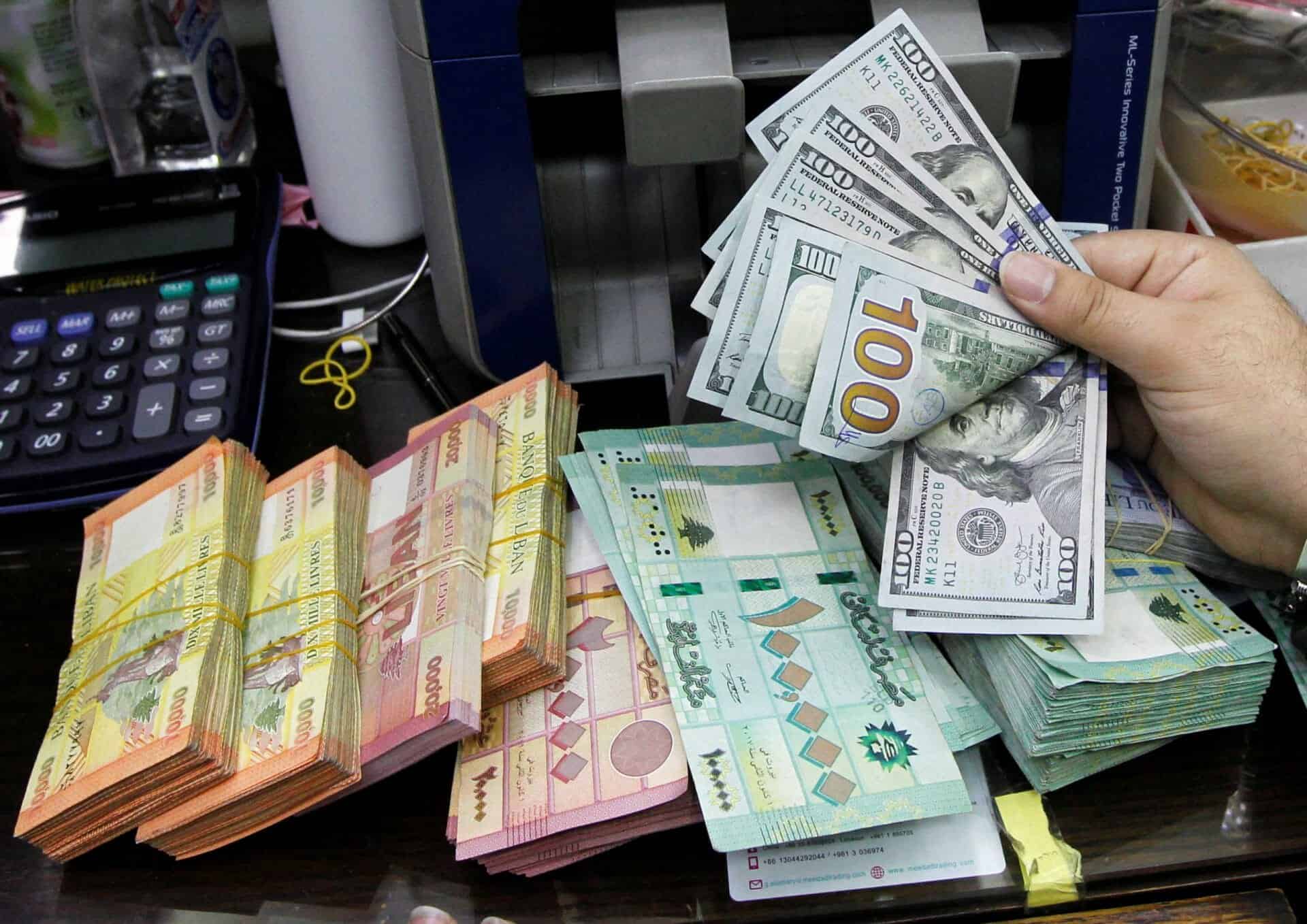The Lebanese currency plummeted on the black market Thursday after the central bank raised the exchange rate for US dollar deposits held in the country’s banks.
“The central bank… has decided to raise the exchange rate for US dollars from 3,900 to 8,000 Lebanese pounds,” it said in a statement.
This new parallel rate affects dollar deposits that have been trapped in Lebanese banks by a capital controls policy that prevents people from withdrawing their savings.
Depositors will now be allowed to withdraw limited amounts of their dollar deposits in Lebanese pounds at double the previous rate.
The move amounts to de facto recognition of the Lebanese pound’s devaluation.
The pound had been pegged — and officially still is — to the dollar since 1997 at a rate of 1,500.
News of the central bank devaluation had an immediate ripple effect on the black market value of the pound which started slipping back towards last month’s record of 25,700 to the dollar.
“The market reaction has already started and the Lebanese pound continues its decline,” financial analyst Henri Chaoul told AFP, criticising what he described as the latest in a string of “unilateral and palliative measures”.
Mike Azar, another financial analyst, said the new measure “will result in additional losses to the central bank and, by definition, further currency devaluation.”
Some observers predict the Lebanese pound could drop to a rate of 40,000 against the dollar or worse in the coming weeks.
The financial crisis that started in 2019 is the worst in the country’s history and has left four in five Lebanese living under the poverty line.








